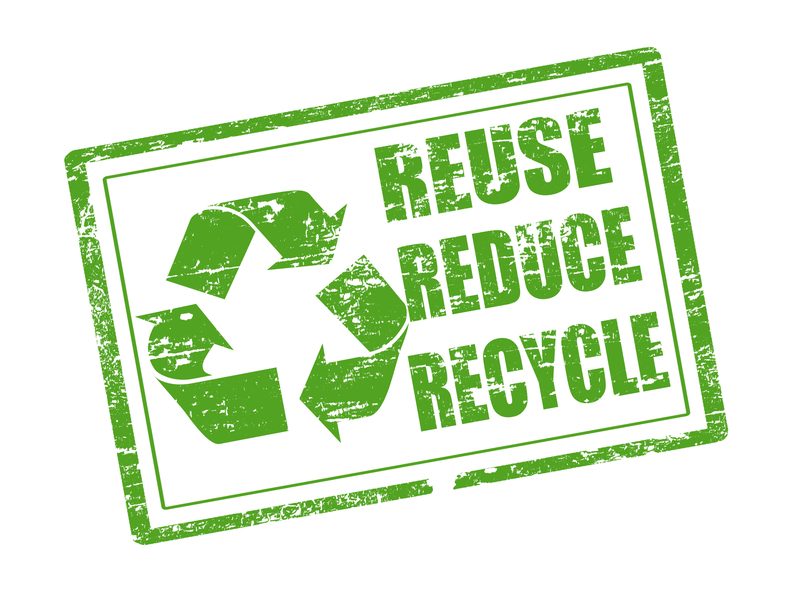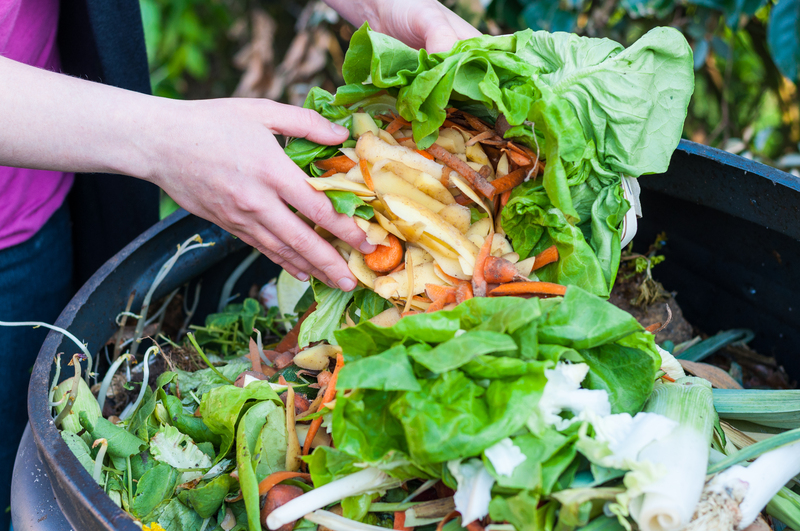Smart Strategies for Office Recycling
Embracing recycling initiatives in the workplace is no longer just an environmentally-friendly gesture; it's a core element of modern corporate responsibility. Businesses that commit to robust office recycling not only reduce their environmental footprint but can also foster a positive office culture, save costs, and attract eco-conscious clients and employees. In this comprehensive guide, we'll explore effective methods, innovative solutions, and practical steps to implement smart strategies for office recycling in your workplace.

Why Prioritize Office Recycling?
The average office generates a significant amount of waste, much of which is recyclable. Without proper management, this waste ends up in landfills, contributing to pollution and wasted resources. *Instituting comprehensive recycling programs isn't just about environmental stewardship; it's also about* cost efficiency *and* brand image. Below are key reasons every office should implement strategic recycling solutions:
- Environmental Impact: Reducing the amount of waste sent to landfills decreases greenhouse gas emissions and conserves natural resources.
- Compliance: Many regions mandate corporate recycling through legislation.
- Cost Savings: Effective recycling can lower waste disposal fees and reduce the need for purchasing raw materials.
- Business Reputation: A demonstrated commitment to sustainability can enhance your company's public image and appeal to eco-conscious partners.
- Employee Morale: Workers feel more positive working for an organization that aligns with their values.
Assessing Your Office Waste Stream
The first step toward implementing intelligent office recycling strategies is understanding your office's unique waste profile. Analyze:
- What types of waste are generated the most? (paper, plastics, electronics, food waste, etc.)
- Which materials are recyclable in your local area?
- Current disposal practices and areas for improvement.
Conducting a waste audit helps pinpoint high-impact opportunities and shapes your overall recycling plan for the maximum benefit.
Designing a Sustainable Office Recycling Program
1. Set Clear and Measurable Goals
Setting achievable targets is fundamental to any successful office recycling strategy. Set clear objectives such as:
- Diverting a specific percentage of waste from landfills within 12 months.
- Reducing single-use plastic consumption.
- Increasing the recycling rate for specific materials (e.g., paper, electronics, ink cartridges).
2. Build a Green Team
A dedicated sustainability or 'green team' can champion your recycling initiatives. Assign roles for monitoring, education, and feedback to keep the momentum going. Empower employees at all levels to take responsibility for recycling efforts, ensuring maximum participation.
3. Provide Accessible Recycling Stations
The effectiveness of any office waste recycling system depends on usability. Place clearly labeled recycling bins at strategic locations throughout the workspace, especially:
- Near high-traffic areas (break rooms, conference rooms, printers).
- Within arm's reach of workstations.
- Next to trash bins to make the choice easy and obvious.
4. Educate Employees Continuously
One of the most crucial office recycling strategies is ongoing education. Even the best-designed programs can falter if employees aren't informed. Regularly:
- Host info sessions or workshops.
- Send email reminders with recycling tips.
- Post signs explaining what belongs in each bin, using images for clarity.
- Share your success metrics to keep everyone engaged.
5. Partner with Certified Recyclers
Not all recycling facilities are created equal. Partner with reputable recycling companies that offer transparent waste processing. Many offer audits, track waste diversion rates, and provide secure destruction of sensitive materials such as electronics or paper.
Smart Recycling Solutions for Common Office Waste
Paper and Cardboard Recycling
- Go Paperless: Shift to digital documentation wherever possible.
- Reuse Before Recycling: Use the back sides of old printouts for notes or drafts.
- Establish Secure Shredding: For confidential documents, opt for services that recycle shredded paper responsibly.
- Recycle Cardboard Boxes: Ensure boxes are flattened and clean.
*Tip: Encourage double-sided printing and the use of recycled-content paper for all printing needs.*
Plastic and Packaging Materials
- Replace Single-use Plastics: Distribute reusable water bottles or mugs to staff.
- Recycle Bottles and Containers: Ensure bins are clearly marked for plastic recycling.
- Buy in Bulk: This reduces packaging waste from smaller, individually wrapped items.
- Introduce Terracycle Bins: For hard-to-recycle plastics, partner with specialty programs like Terracycle.
Electronics and E-Waste Recycling
- Hold E-Waste Drives: Set regular collection days for old electronics.
- Partner with Certified E-Waste Handlers: Ensure data destruction and ethical recycling of IT equipment.
- Upgrade Responsibly: Donate working equipment to charities or refurbish for extended use.
Ink and Toner Cartridges
- Enroll in Manufacturer Return Programs: Many leading brands offer free recycling for used cartridges.
- Switch to Refillable Cartridges: Minimize single-use waste.
- Consolidate Printing: Use networked printers to cut down on individual printer waste.
Organic and Food Waste
- Introduce Compost Bins: Many offices can implement small-scale composting for coffee grounds and food scraps.
- Partner with Local Food Banks: Donate excess edible food from office kitchens or events.
- Encourage Waste-Free Lunches: Promote BYO containers and utensils among staff.
Advanced Office Recycling Tips: Future-Proof Your Program
Adopt Smart Bin Technology
Leverage technology by investing in sensor-based recycling stations that *track and report waste composition and volumes.* These smart bins remind users in real time what to recycle, and can gamify participation with trackable goals or rewards.
Use Centralized Waste Stations
Centralizing waste and recycling stations (rather than individual desk bins) can improve sorting accuracy and reduce contamination, making recycling efforts *more effective and visible.*
Regularly Monitor and Report Progress
- Share monthly or quarterly recycling performance statistics with staff.
- Adjust strategies based on feedback and changing waste patterns.
- Celebrate milestones and reward teams or departments for eco-friendly behavior.
Green Procurement Policies
Use purchasing policies to support your recycling efforts. Choose office supplies made from recycled or upcycled materials and select products with minimal or recyclable packaging.
Overcoming Challenges in Office Recycling
Effective office waste recycling strategies aren't without hurdles. Here's how to tackle common obstacles:
- Contamination: Provide clear bin labels and hands-on demonstrations.
- Lack of Participation: Make recycling convenient and create incentives for compliance.
- Space Constraints: Utilize compact recycling units and schedule frequent pick-ups.
- Changing Habits: Integrate reminders into meetings, email signatures, and intranets.
- Facility Limitations: Work with your property manager to enhance recycling capabilities, expand pick-up services, or adjust cleaning contracts.
The ROI of Office Recycling Programs
Investing in smart office sustainability and recycling strategies delivers value beyond environmental creds. Companies often uncover:
- Lower waste management costs thanks to smaller landfill pickups and reduced supply purchases.
- Tax incentives or government rebates for recycling initiatives.
- Boosted employee engagement and workplace satisfaction.
- A stronger, greener brand to attract customers, partners, and talent.

Real-Life Examples: Recycling Success Stories
- Large tech companies eliminated individual desk bins, boosting recycling rates by 40%.
- Consulting firms introduced green teams, reducing paper waste by transitioning to digital platforms and instituting regular recycling awareness campaigns.
- Small businesses partnered with local recycling services and saw a 60% diversion from landfills after launching a multi-stream bin system.
*Let these examples inspire your own journey toward a cleaner, more efficient workplace.*
Conclusion: Make Smart Office Recycling Your Competitive Advantage
Smart strategies for office recycling are essential for any business committed to sustainability, cost savings, and strengthening company culture. By assessing your unique waste streams, educating your workforce, leveraging technology, and continuously monitoring progress, your office can create a recycling program that works--now and for years to come.
Ready to transform your workplace into an environmental leader? Start implementing these intelligent recycling solutions today for a greener tomorrow.
- Start with a waste audit
- Engage your team at every level
- Invest in user-friendly recycling infrastructure
- Keep sustainability front and center
Together, we can make the office a model of sustainability and responsibility. Go green, and let your recycling efforts shine!